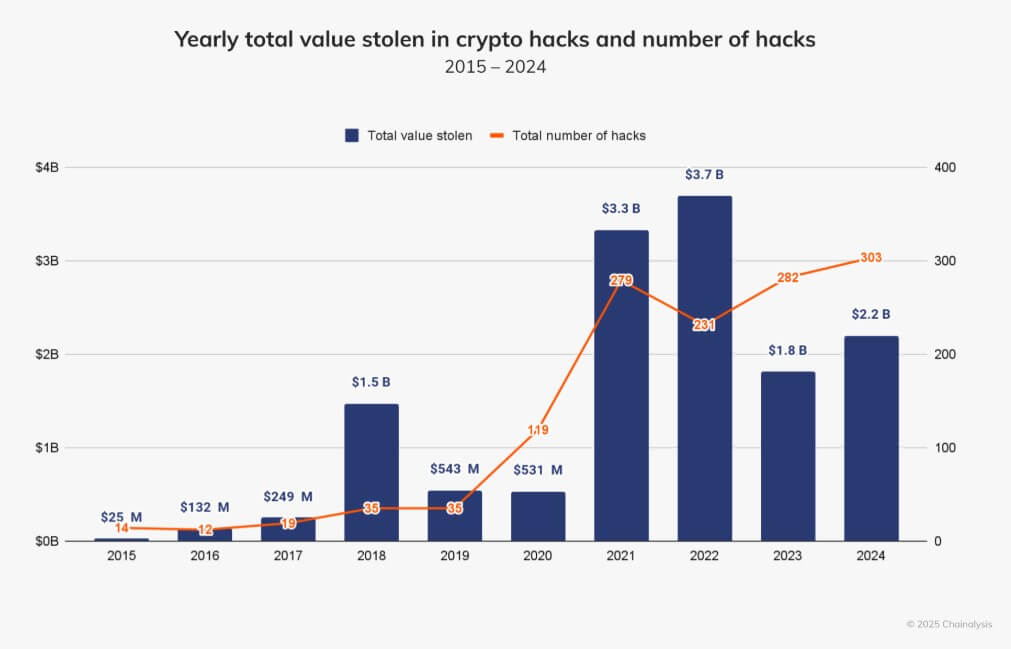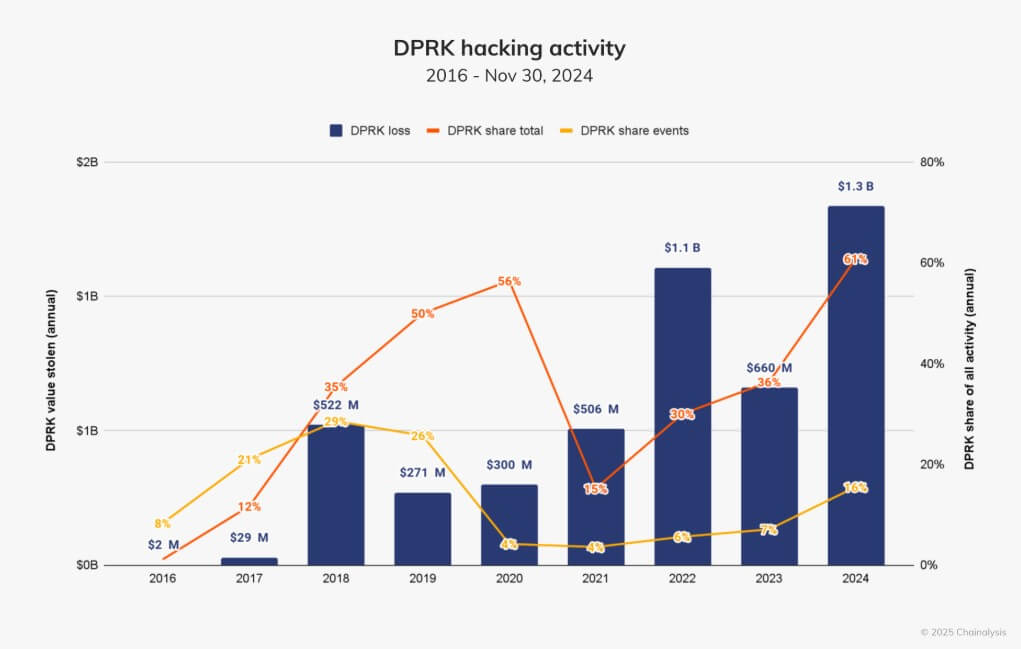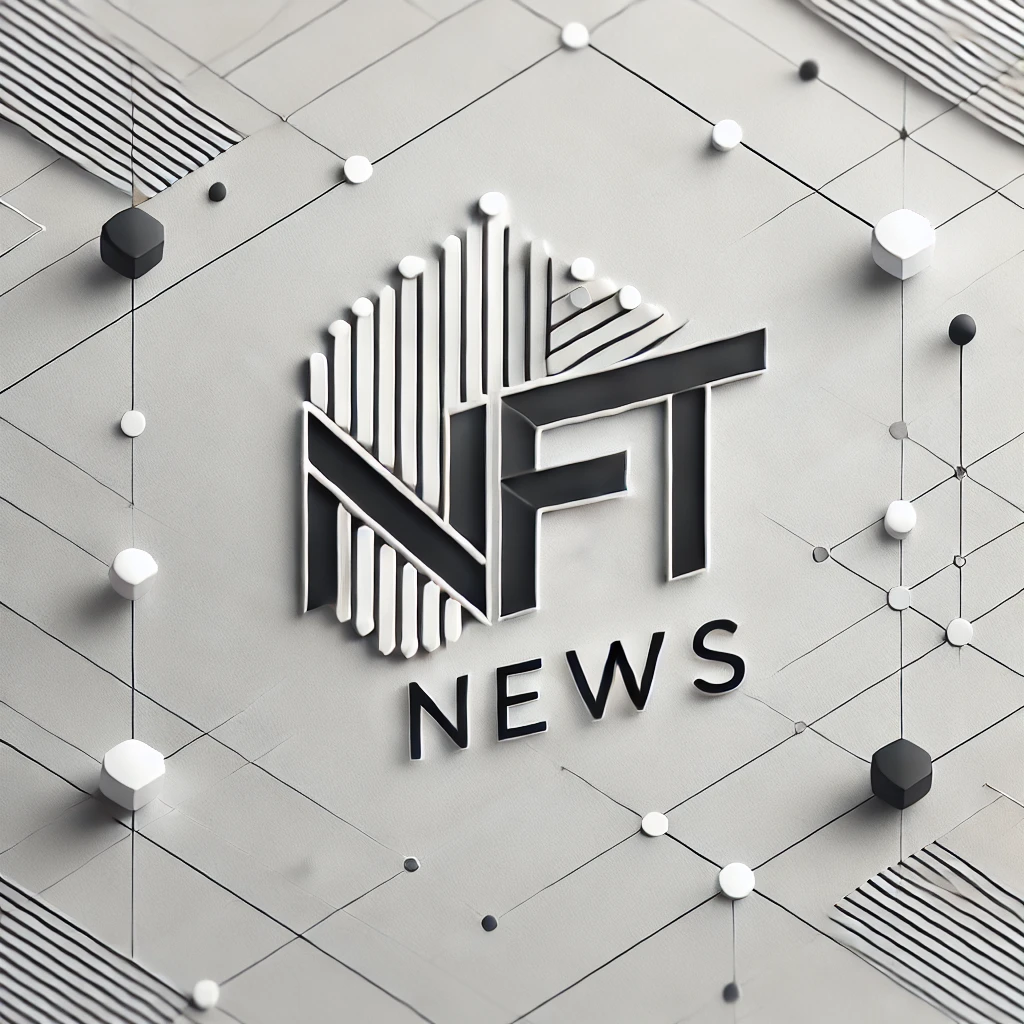Crypto thefts will increase to $2.2 billion in 2024, representing a 21% increase from the previous year.
Based on a December 19 report by Chain analysisthe increase is closely related to a growing wave of hacking activity, particularly by cybercriminal groups linked to North Korea.
Intensification of hacking activity
The crypto sector experienced 303 hacks in 2024, up from 282 in 2023. The attacks resulted in significant losses, and the bulk of the stolen funds—$1.58 billion—were taken between January and July. This period accounted for 72% of the total amount stolen in 2024, representing an 84% increase over the same period in 2023.
Unlike previous years, centralized exchanges bore the brunt of these attacks, overtaking DeFi platforms as the main target. Significant events include a $305 Million Bitcoin DMM Breach On May 1 The 235 million dollar WazirX hack In July

Chainalysis identified private key vulnerabilities as a major vulnerability, with these exploits contributing to around 44% of all stolen funds in 2024. Meanwhile, hackers often transfer these stolen assets through decentralized exchanges, mixing services, and blockchain bridges to hide their activities and prevent their activities from being tracked. Efforts
North Korea is responsible for stealing cryptocurrencies
North Korean hackers It hit a new high in 2024, stealing $1.34 billion in 47 attacks.
This operation accounted for 61 percent of all funds stolen for the year, representing a staggering 103 percent increase over the $660 million attributed to North Korea in 2023. The data also shows a higher pace of attacks, particularly those involving significant amounts of more than $50 million. .


However, geopolitical developments may affect these activities.
After the late June meeting between Russian President Vladimir Putin and North Korean leader Kim Jong Un, the value stolen by North Korean hackers dropped significantly. The average daily amount fell by nearly 54% after July 1st.
Meanwhile, non-North Korean thefts saw a slight increase after this period, indicating a potential shift in focus for North Korea, possibly related to its growing military and technological cooperation with Russia.





